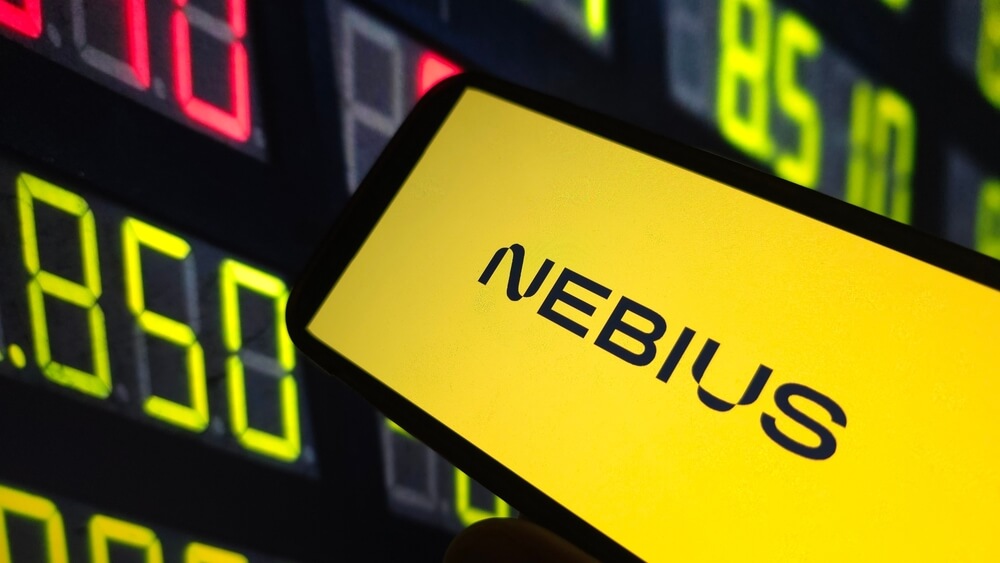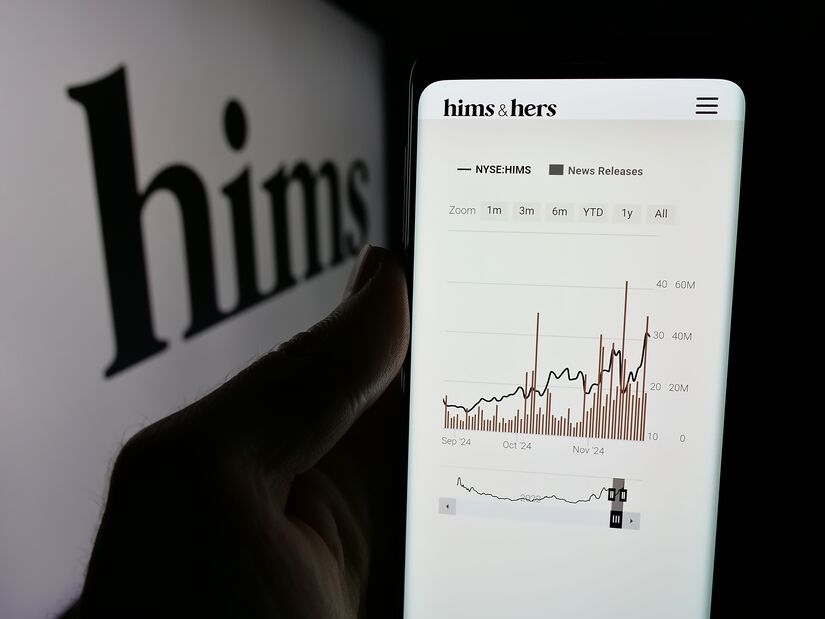Nebius Stock Drops 20% After Nebius Earnings Release: Will NBIS Rebound?

TradingKey - Nebius, a cloud service provider focused on AI infrastructure, released its Q3 2025 earnings before market open on November 11. Despite announcing a new $3 billion order with Meta, the stock plunged over 7% that day due to weaker-than-expected results, and has since fallen nearly 20%. Nonetheless, its shares are still up more than 200% year-to-date.
Will Nebius's stock rebound? Is now the right time to buy? This article will address these questions.
What is Nebius (Nasdaq: NBIS)?
Nebius, a Dutch cloud service provider, is more precisely categorized as a "neocloud" company. The company began trading on Nasdaq under the ticker NBIS on October 21, 2024.
1. Nebius's Business
Nebius is a full-stack AI cloud infrastructure provider, with its core business being the Nebius AI Cloud platform, specifically designed for AI workloads. This platform offers a comprehensive suite of infrastructure, including not only compute resources but also storage, managed services, and tools. Services like Virtual Private Cloud (VPC), storage systems, and managed Kubernetes all operate within its cloud environment. Nebius AI Cloud helps AI developers build, fine-tune, and run their models. Simply put, Nebius generates revenue by providing a ready-to-use platform and a full set of plug-and-play tools, rather than just renting out GPUs.
Central to its AI cloud platform is GPU-as-a-Service (GPUaaS), which allows users to access and utilize the company's NVIDIA GPU clusters through the cloud. Nebius provides near bare-metal GPU access, enabling users to run operating systems and applications directly on physical servers, eliminating the performance overhead and resource contention often associated with virtualization layers. This approach maximizes performance for AI workloads. The company operates seven large GPU clusters across Europe, the U.S., and the Middle East.
2. Nebius's Business Model
Given Nebius's full-stack service offering, its customer base is more diverse compared to other neocloud companies, encompassing a range of users from tech giants to startups.
In November 2025, the company announced an agreement with Meta Platforms Inc. to provide approximately $3 billion worth of AI compute infrastructure over five years. Previously, Nebius also secured a deal worth up to $19 billion with Microsoft Corp. Before these two major contracts, Nebius primarily served small and medium-sized clients.
The company's revenue is primarily driven by its core AI infrastructure business. According to its latest earnings report, core infrastructure services accounted for nearly 90% of its Q3 revenue. Additionally, Nebius generates revenue from its autonomous vehicle platform subsidiary, Avride, and its ed-tech service, TripleTen.
3. Industry Overview
Nebius operates in the neocloud service industry, which specializes in providing computing power for AI and high-performance computing (HPC) workloads. Traditional cloud service providers (such as Amazon AWS, Microsoft Azure, and Google Cloud) typically offer broader, more generalized services for a wide range of industries. Neocloud companies, conversely, focus on delivering specific infrastructure optimized for AI.
This industry has surged with the explosive growth in AI. As market demand for powerful computing rapidly increased and traditional cloud providers' general-purpose infrastructure proved insufficient to fully meet these needs, neocloud service providers seized the opportunity to expand their market share.
4. Company History
Nebius's predecessor, Yandex, was considered Russia's Google equivalent and was Russia's largest tech company. Its Russian operations included the country's largest search engine, ride-hailing app, and e-commerce platform. The company was founded in 2004 and went public on Nasdaq in 2011, trading under the ticker YNDX.
After the Russia-Ukraine war erupted in 2022, Russian companies listed in the U.S. faced financial sanctions. YNDX's trading on Nasdaq was suspended in February 2022, and it subsequently received a formal delisting notice. Following an appeal, Yandex retained its listing status but was required to complete a significant corporate restructuring by the end of 2023, divesting its core Russian businesses.
In 2024, Yandex's Dutch parent company sold its local Russian operations to a local consortium. In August 2024, it officially rebranded as Nebius Group NV, and formally resumed trading on Nasdaq on October 21, 2024, under the ticker NBIS.
Recent Nebius News
On November 11, 2025, Nebius reported its Q3 earnings. While the company achieved a stunning 355% revenue growth for the quarter, with core business revenue surging 400%, its losses widened beyond expectations.Since the earnings release (as of November 14), Nebius's stock has declined 19%.
In September and November of this year, the company secured two major orders from Microsoft and Meta, respectively, to provide cloud computing services, with the Microsoft agreement alone valued at up to $19 billion.
Nebius Stock Historical Performance
October-November 2024: Gradual Ascent from Lows
Nebius resumed trading on October 21, 2024, with an opening price of just $14.29. By the end of November, it closed at $21.99, an increase of over 50%. However, there were no significant jumps during this period, and the stock climbed steadily. This likely stemmed from lingering market doubts about Nebius, which had just divested its Russian assets, thus preventing fervent buying.
December 2024: Surges on Nvidia Investment
On December 2, Nebius announced a private placement to raise $700 million by issuing 33.3 million shares at $21 per share. Nvidia and other investors participated in this funding round, causing the stock to soar 67% that week. Due to the rapid short-term increase, some investors opted to take profits. Furthermore, as the market had already priced in the company's future prospects, Nebius's stock pulled back in the latter half of December.
Nevertheless, before 2025, Nebius announced a series of investment plans. These included investing $1 billion in AI infrastructure in Europe by mid-2025, establishing a new GPU cluster in Paris, expanding its data center in Finland, launching a new cloud computing platform based on Nvidia processors, and opening cloud computing operations in the U.S. equipped with up to 35,000 Nvidia chips. These plans laid a solid foundation for Nebius's explosive growth in 2025.
January-August 2025: Overall Upward Trend with Fluctuations
Thanks to the $700 million private placement, with Nvidia's participation, completed at the end of 2024, and the "StarGate" initiative announced by former President Trump in early 2025 igniting an AI infrastructure investment boom, Nebius started 2025 with strong gains.
Although the stock experienced short-term volatility during this period, partly due to earnings reports not meeting high expectations, sustained demand growth for its core AI business, significant revenue increases, and positive analyst ratings all contributed to the stock's overall ascent. The shares climbed over 130% from January to August.
September-Early October 2025: Surges 60% on Microsoft Deal
On September 8, following the announcement of an agreement with Microsoft worth up to $19.4 billion, Nebius's stock surged as much as 60% after hours that day, pushing the company's market capitalization above $15 billion. Filings with the SEC revealed that the deal would bring Nebius $17.4 billion, with Microsoft retaining an option to procure an additional $2 billion in services, potentially bringing the total to $19.4 billion. Nebius stated that this order would enable it to significantly expand its AI cloud business in 2026. From September to October 10, the stock gained nearly 100%.
Mid-October 2025-Present: Significant Correction
Since mid-October, the broader U.S. neocloud sector has underperformed the wider market, and Nebius was no exception. From October 10, the stock fell for seven consecutive trading days, declining 28%, likely driven by concerns over its valuation bubble.
Analysts have pointed out that based on its projected annual recurring revenue (ARR) of $1 billion, the company's price-to-sales (P/S) ratio stands at 28, and its price-to-earnings (P/E) ratio is 123.35. This may suggest that investors are overly optimistic about the company's growth prospects. In contrast, the company currently faces substantial and widening losses.
On November 11, before market open, Nebius released its Q3 earnings. While revenue growth was strong, results missed market expectations, and losses expanded. Concurrently, the company announced a $3 billion long-term AI infrastructure service agreement with Meta.From November 10 to the close on November 13, the stock has fallen nearly 20%.
Is Nebius Stock 20% Drop a Buying Opportunity?
In the short term, Nebius continues to incur losses, and its profitability remains insufficient. However, the Microsoft and Meta orders provide revenue support for 2026, which could help reduce its losses. From a long-term perspective, as long as the AI market continues to grow and demand for AI infrastructure remains robust, Nebius, as a cloud service provider, stands to generate sustained revenue.
Short-Term Challenges: Growth at a High Burn Rate + Capacity Constraints
Nebius operates in the high-growth neocloud sector. The company's substantial capital expenditures are primarily allocated to building data centers and procuring GPUs. This model will inevitably continue to pressure profitability in the short term.
Additionally, despite Nebius's significant investment in data center construction and expansion, its capacity remains insufficient. The CEO stated during the Q3 earnings call that the company's Q3 capacity was already sold out, and Q4 capacity is nearly exhausted, indicating that market demand has outstripped the company's supply capabilities. This could potentially hinder its capital expenditure plans, thereby affecting future contract fulfillment and revenue.
It is important to note that while Nebius is relatively leading in the neocloud space, traditional cloud giants (AWS, Azure) are also increasing their investment in AI infrastructure. Simultaneously, other neocloud players are accelerating their efforts, making it crucial for Nebius to maintain its competitive edge.
Long-Term Potential: AI Demand Continues to Drive Growth
In the AI supply chain, Nebius acts as a "picks and shovels" provider, offering infrastructure in the form of high-performance AI computing power. Compared to companies directly involved in AI application development, Nebius's outlook is more stable: as long as the AI industry continues to expand and demand for AI computing remains strong, Nebius's prospects will remain positive.
Furthermore, compared to competitors like CoreWeave, Nebius benefits from a more diverse user base due to its full-stack cloud computing services, extending beyond just tech giants. This helps reduce customer concentration and diversify risk.
Is the Current Stock Price Worth Buying?
As of the close on November 13, Nebius's stock price was $88.63, having surged over 200% year-to-date. According to TradingKey's stock rating system, the average target price from seven analysts is $149.80, implying a 69% upside potential for the stock. From a target price perspective, investors might consider buying at the current price.
However, from the perspective of P/E and P/S ratios, Nebius, as a company still incurring losses, appears to have a very high valuation. This reflects the market's enthusiasm and optimism for the AI infrastructure sector. While this might support further stock appreciation, extremely high expectations also mean that any negative news, such as slower growth, or a shift in market sentiment, could lead to a significant stock correction. Therefore, buying at the current price may entail substantial downside risk, requiring investors to have a high risk tolerance.
Summary
Nebius, a leading full-stack AI cloud infrastructure provider in the neocloud space, has seen its shares rise over 200% this year. Recently, it secured over $20 billion in new orders, indicating strong support for its stock from both market sentiment and fundamentals. Nevertheless, the prospect of potentially long-term losses and persistent demand outstripping its expanding capacity pose headwinds for the stock. Investors should carefully weigh these risks before making investment decisions.
This content was translated using AI and reviewed for clarity. It is for informational purposes only.








